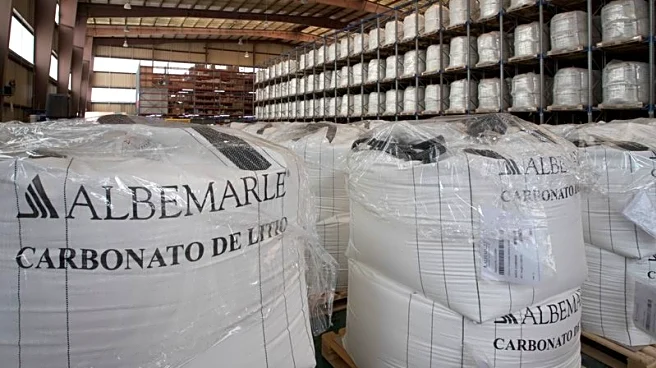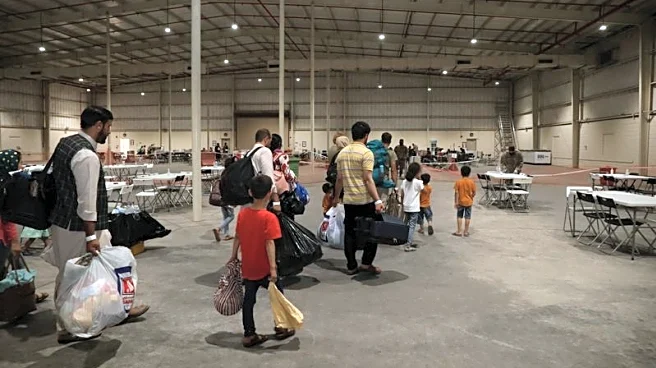What's Happening?
Manufacturing companies in the United States are facing ongoing inflationary pressures due to tariffs imposed by the Trump administration, which are expected to persist into 2026. According to IndustryWeek,
industrial distributors such as MSC Industrial Direct and W.W. Grainger have been implementing multiple rounds of price increases in response to supplier cost pass-throughs. These tariffs, including Section 232 tariffs, have significantly increased costs for companies like Regal Rexnord, whose estimated tariff impact for 2025 has risen from $60 million in March to $175 million by October. Initially, companies stockpiled inventory to mitigate tariff costs, but as these supplies dwindle and profit margins shrink, they are compelled to pass these costs onto customers.
Why It's Important?
The ongoing impact of tariffs on manufacturing is significant for the U.S. economy, as it affects both producers and consumers. Manufacturers are experiencing increased operational costs, which could lead to higher prices for goods and potentially reduced competitiveness in the global market. This situation may also influence supply chain strategies, as companies seek to manage costs and maintain profitability. Consumers may face higher prices for products, affecting purchasing power and overall economic activity. The persistence of these tariffs into 2026 suggests long-term challenges for the manufacturing sector, potentially influencing policy discussions and business strategies.
What's Next?
As manufacturers continue to grapple with tariff-related costs, they may explore alternative strategies to mitigate these impacts, such as diversifying supply chains or investing in automation to improve efficiency. Policymakers might also face pressure to reassess tariff policies, considering their long-term effects on the economy. Businesses and industry groups could advocate for changes to tariff regulations to alleviate financial burdens. The situation may lead to increased dialogue between industry leaders and government officials regarding trade policies and economic strategies.
Beyond the Headlines
The tariff situation highlights broader issues related to international trade and economic policy. It raises questions about the balance between protecting domestic industries and fostering global competitiveness. The long-term implications of these tariffs could influence future trade agreements and economic policies, as stakeholders evaluate the effectiveness and consequences of such measures. Additionally, the situation underscores the importance of strategic planning and adaptability in the face of changing economic conditions.











